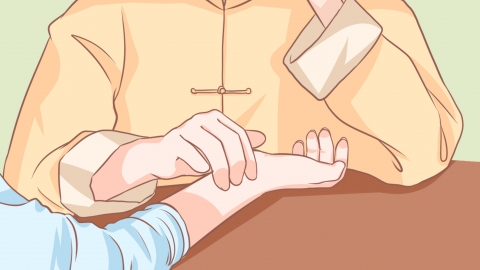What are the symptoms of spleen deficiency with excessive dampness?
Generally, the main symptoms of spleen deficiency with excessive dampness include body heaviness, abdominal distension with loose stools, thick腻 tongue coating, limb edema, and loss of appetite. If discomfort symptoms appear, it is recommended to seek timely treatment at a regular hospital. Detailed analysis is as follows:
1. Body Heaviness
When there is spleen deficiency with excessive dampness, accumulated dampness in the body can cause heaviness and fatigue, as if carrying a heavy load. This sensation is difficult to relieve even after rest, particularly evident in the limbs, and may be accompanied by aching and swelling during movement.
2. Abdominal Distension with Loose Stools
When the spleen's transformation and transportation functions are weakened, internal accumulation of dampness can affect normal gastrointestinal motility, causing significant abdominal distension, which worsens after eating. At the same time, the stool is often unformed and loose, with increased frequency, and frequently contains undigested food particles.

3. Thick and Greasy Tongue Coating
Changes in tongue coating are one of the typical manifestations of spleen deficiency with excessive dampness. The surface of the tongue is covered with a thick layer of coating, usually white or yellow in color, with a sticky texture. This is particularly noticeable upon waking in the morning and is difficult to completely remove even with brushing.
4. Limb Edema
Dampness tends to move downward. When spleen deficiency leads to abnormal water metabolism, fluid can accumulate in the limbs, causing limb edema. Pressing on the skin leaves an indentation that takes a long time to recover, and lower limb edema is more common.
5. Loss of Appetite
Spleen deficiency disrupts the functional coordination of the spleen and stomach, and dampness obstructs the qi movement of the spleen and stomach, resulting in loss of appetite and disinterest in food. Even when food is consumed unwillingly, symptoms such as indigestion and belching may easily occur.
Daily attention should be given to avoiding damp living environments and maintaining indoor ventilation and dryness. Diet should reduce intake of sweet, greasy, raw, and cold foods. Consumption of dampness-resolving foods such as coix seed, red adzuki beans, and winter melon is recommended. Moderate exercise, such as brisk walking or yoga, can help promote the elimination of dampness. If symptoms persist or worsen, timely professional assistance should be sought for regulation.









